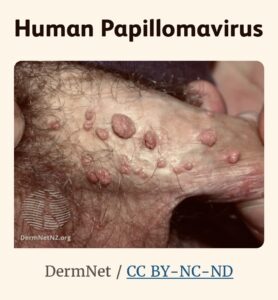
You just found out you’ve contracted HPV, HUMAN PAPILLOMAVIRUS. Now what? The first thing you are NOT going to do is panic. Secondly, you will maintain a relationship with an urgent care center provider or your regular primary care provider for treatment and counselling. Thirdly, if possible, you will contact your partner or partners informing them of your condition.
WHAT IS HPV?
-It is a group of viruses that can cause warts and other health conditions. One reason I am focusing on it and writing about it, although one of my colleagues recently told me she hasn’t seen warts too much lately in her practice as a women’s health nurse practitioner, is because HPV is the most common incurable viral sexually transmitted diseases with over six million Americans affected yearly. There are over 200 types of HPV-ranging from low to high risk.
HOW DID YOU GET IT?
-HPV is spread through close skin to skin contact, usually through sexual activity. The risk of infection increases with the number of sexual partners. But, you can become infected with the virus without sexual activity. If you are in PROLONGED contact with an infected skin, via holding hands for instance, the virus can be transmitted.
HOW IS HPV DIAGNOSED?
-HPV is usually diagnosed with an HPV test or an abnormal pap test can signal trouble. A test looks for HPV DNA in cervical cells. The test can be performed alone or in conjunction with a pap test. If you go to the clinic and are simply asking for a STD test, a HPV swab would be included. But if the swab results positive, then the provider will strongly suggest a pap smear. This is for women, of course. Please note there is NO general test for men or women to check HPV. And currently, there is NO approved test to rule out HPV in the mouth, throat or genitals.
HOW IS HPV TREATED?
-While there is no cure for HPV, the body’s immune system usually clears most infections within a few months or years. Another reason why you should treat your body with respect-giving it good food, lots of water, a moderate amount of exercise and rest, to include sleep. However, while no cure exists, there are treatments for the health problems HPV causes. 1-genital warts can be treated with medicated creams, freezing the warts with liquid nitrogen or surgery. But the warts may return after a few weeks and therefore require repeated treatments. 2-if abnormal cervical cells are resulted, cryotherapy or freezing them can be done.
TIP#1
-the HPV vaccine is safe and effective, offering mild aftereffects to include inflammation and soreness at the injection site; possible fainting or dizziness once the injection is given. For this, we usually ask the patient to remain seated for approximately 15 minutes post injection to monitor this. But I will say that following all the injections I’ve given, no one has fainted. The CDC recommends the vaccine be given to patients age 9-26 to reduce the risk of HPV-related cancers later in life. However, those 27-45 may consider getting the injection if they weren’t vaccinated when they were younger. The number of doses depends on the age it was first given. Two doses for patients getting their first one before age 15. Three doses for those getting their first dose at or after age 15 or for those people with certain immunocompromising conditions.
TIP#2
-HPV causes head and neck cancers too! with the virus spreading to the throat due to oral sex. According to Dr. Cornelia Liu Trimble, director of John Hopkins Center for Cervical Dysplasia, the rate of cancers in the back of the throat is skyrocketing. Some experts are using the word EPIDEMIC.
And lastly, TIP#3
-According to Dr. Trimble, while women can get the associated HPV-related cancers, most of the people who get them are HETEROSEXUAL MALES. All the more reason for boys to be vaccinated as well.

